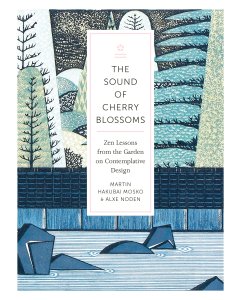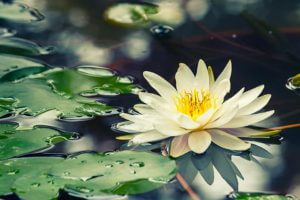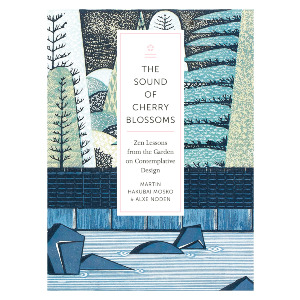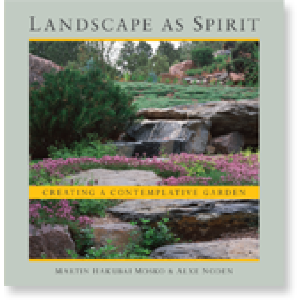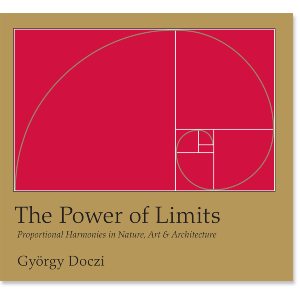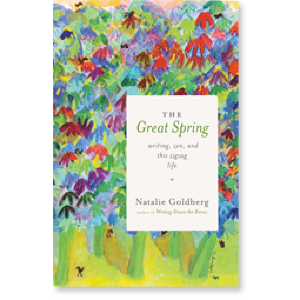

Martin Hakubai Mosko
Martin Hakubai Mosko, ASLA, founded the landscape design and construction firm Marpa & Associates in 1974. He studied painting and Sanskrit at Yale, and has apprenticed with Japanese master gardeners. Mosko is a Zen monk and heir to the lineage of Tenzan Keibun Otokawa Roshi, and trained in Tibetan Buddhism with Chögyam Trungpa Rinpoche. In addition to his responsibilities at Marpa, he is abbot of Hakubai Temple and travels the country lecturing on garden design and meditation.
Martin Hakubai Mosko
GUIDES
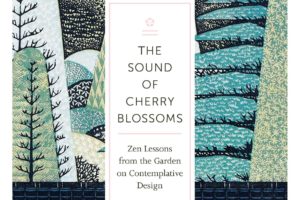
The View | An Excerpt from The Sound of Cherry Blossoms
We have all been in gardens—even very costly ones—that we find oddly uninspiring. There are the landscapes around mansions where money has been lavished on moving trees, building pools, patios, and fire pits, and planting lush lawns, yet we don’t much enjoy being in those spaces and may even find them stale and uncomfortable. People can spend a lot for a deeply unsatisfying garden. And we have all experienced the small dead spaces outside commercial areas like hotels and grocery stores where we wonder why they even bothered with “landscaping.”
So what is the difference between these sad landscaped spaces and the gardens I talk about in this book? A garden built on Zen principles joins Heaven and Earth. This kind of garden is where we can find our true selves and where we can completely relax without losing awareness of all that is around us. In fact, the compelling sensory experiences of the garden will magnetize our attention and bring us to the present moment. Once we are awake in the moment, the serenity, harmony, and balance of the garden give us the chance to experience who we really are, to have insight into our true nature.
For me, the garden is a place that allows us access to big mind (that which is open, welcoming, and vulnerable) beyond our small mind (the ego-driven mind that is never satisfied and self-protective), a place that is sacred as it engages us with something beyond ourselves. It is a space in which we can find not only pleasure and ease but also insight and wisdom. The garden reflects the clear and quiet mind from which its design arose.
For me, the garden is a place that allows us access to big mind (that which is open, welcoming, and vulnerable) beyond our small mind (the ego-driven mind that is never satisfied and self-protective), a place that is sacred as it engages us with something beyond ourselves.
In order to create a true garden, we have to figure out what we are aiming for. We have to define what the garden is. Successful gardens have certain characteristics that we can see and feel; we should set an intention at the outset to bring these characteristics into our design. If the target we’re aiming for is unclear, we have little chance of hitting it. Though we can’t control what befalls us, we can certainly clarify what we want from our work and our lives, rather than flailing around helplessly in reaction to circumstances. The same is true for garden design. It’s useful to begin your transformation with a clear definition of your goal. When defining a contemplative garden we want to consider the following characteristics.
The Garden Is an Energetic System
A garden is defined by its location, its contents (attributes, behaviors, and relationships), and its boundaries. It is a world in itself, a complete but evolving whole. A garden is more than a way to improve the functionality or the resale value of a home, business, or institution. It has its own structure and composition and a personality that seeks expression, and it is beyond style and concepts. For example, Japanese garden styles are difficult to import to certain areas of the United States, where climate conditions and cultural references are so different. However, the underlying principles of Japanese garden design are accessible and can be employed in other cultures and environments.
The whole of your life is an energy system as well. It contains your family, friends, coworkers, and other people, the environment in which you all live, and the way you all relate to each other and to the environment. Making changes to one part of the system is going to affect the whole and all the rest of the parts.
The whole of your life is an energy system as well. It contains your family, friends, coworkers, and other people, the environment in which you all live, and the way you all relate to each other and to the environment. Making changes to one part of the system is going to affect the whole and all the rest of the parts.
The Garden Is a Quiet Place at Its Heart
While it may be a place for play and entertainment, a garden will also give us the space to connect with spirit. It is a place where everything is alive and where we come alive. Its quiet nature gives us the space to feel and live more fully. As a result, we feel joined to it. There are benefits to that connection: it can restore our energetic balance and harmony and promote relaxation of mind and body. The garden awakens our soft heart. We have a chance to see who we really are. This is only possible because the garden is peaceful, not a place for agitation or worry. The garden absorbs our attention with its beauty and vivacity, drawing us out of our self-referential state.
The Garden Is a Place That Holds Our Memories and Where We Create Memories
Once a group of priests were planning to visit a new national monument in Oklahoma, the site of an Indian massacre. Before they went, they met with an elder of the Cherokee Nation. The elder told them that they should listen to the river at the site, where the tears of suffering could still be heard. Beside the river was an ancient tree that also remembered the suffering, and the tall grasses nearby cried with the unresolved pain of the past. This elder understood that the landscape feels and remembers. And many who have visited Auschwitz or the various 9/11 memorial sites report feeling echoes of the trauma that occurred in these places.
The same can be true of the more positive memories that are made in a garden. The garden remembers our birthday celebrations, the weddings that took place there, and other happy moments. The garden retains the imprint of those who inhabit it. A well-designed garden can create the kind of calm and spaciousness that encourage insight. The repository of memories is then a force for good in our lives.
The Garden Is a Place That Fosters Connection and Relationships
A friend of ours has had to move frequently to follow her husband on business. Wherever she goes, she digs up her mother’s roses and irises and takes them along. Watching them grow and flower again in each new space brings her a sense of home and allows her to connect to the new space. In our own garden we have my mother’s cherry trees and my father’s roses. Especially when they bloom, I am linked to my home of the past and the beloved ones who occupied it. This sense of connection is an important aspect of what the garden is.
In our own garden we have my mother’s cherry trees and my father’s roses. Especially when they bloom, I am linked to my home of the past and the beloved ones who occupied it. This sense of connection is an important aspect of what the garden is.
The Garden Promotes Not Just Our Spiritual Health, but Our Physical and Mental Health as Well
A healthy organism is integrated, with every cell and every organ helping and informing the others. One reason a well-integrated organism is a healthy one is that all the parts are connected and available to one another. All channels are open. If there is a challenge to a particular part, all the other parts contribute what they can to help.
When we enter an integrated and alive environment, we immediately sense its underlying order. Our bodies and minds can respond to this and connect to our own health and inborn order.
A great deal of research has been done on the adverse health effects of the physical, chemical, and biological hazards in our environment. But a healthy, calm, orderly environment has been less studied. We go about our lives creating environments all the time—in our homes, our cars, and our cubicles at work. At an unconscious level we all are aware of how mess and disorder can make us feel unhappy and limited. What we don’t seem to realize is the degree to which we are creating a feedback loop between our environments and ourselves. Driving in a car strewn with food wrappers or papers is not conducive to calm and focused driving. Experiencing a garden filled with beauty and order will almost certainly allow us to calm and clarify our minds, and it will lift our spirits.
The Garden Is a Place That Offers the Possibility of Realization
When all of our senses are magnetized, we can experience a dropping away of mind and body and a loss of self-centered identification. This gives us the opportunity to step outside our habitual thought patterns. In a sense, our experience of who we are becomes the garden and the garden is at peace with all things. This is a very good environment for understanding something about who we are and why we are here.
In the garden, personal transformation can occur. What we are, who we think we are, and how we present ourselves are accumulations of thoughts, perceptual patterns, actions, and emotions, which get linked together and form our story line, the way we identify ourselves. From our personal story line we generate habits of thought, behavior, posture, and movement. Being in the garden gives us the opportunity to return to the present moment—to the bee’s buzz on the flower, the soft breeze—and to interrupt habitual patterns. This interruption is an opportunity for awareness to shine through to the face of unborn consciousness.
From our personal story line we generate habits of thought, behavior, posture, and movement. Being in the garden gives us the opportunity to return to the present moment—to the bee’s buzz on the flower, the soft breeze—and to interrupt habitual patterns. This interruption is an opportunity for awareness to shine through to the face of unborn consciousness.
The Garden Joins Heaven and Earth
“Heaven” is the mind—but big mind, not ego mind. It is innocent and curious and without self-reference. “Earth” is form, mass, structure: the stuff of our ordinary reality. When the two meet, the inchoate mind infuses the material world with its properties. The intention to wed these two aspects of our experience is the heart of garden design, as it is—or should be—the aspiration of any kind of design or art. When we marry Heaven and Earth, the result is a space of joy, inspiration, elegance, and delight. From the moment we enter it, we can feel we have entered a sacred space. Its peace provides a setting where we can relate to our sorrows, our losses, and our misfortunes, as well as our basic caring for our world and those around us. The sense of uplift and balance provides opportunity for renewal, regeneration, and healing.
This is not an entry into some other realm; it is an awakening to the extraordinary nature of ordinary experience. We are able to touch something that is already in us. Kodo Sawaki Roshi once said that “no matter how long you practice zazen, you’ll never become anything special.”
The garden is not Disney World or some “wow!” moment; it is a place to experience ourselves as we are, in peace, perhaps for the first time.
The garden, which reflects and exhibits not an ideal order but the natural order of consciousness itself, embraces change, growth and decay, birth and death, deep stillness, and the movement of falling water. It exists beyond time in the fragile embrace of impermanence. Since that is also the way we exist, the garden is a reflection of us, and we are a reflection of the garden.
This has been excerpted from The Sound of Cherry Blossoms: Zen Lessons from the Garden on Contemplative Design.
Related Books

Martin Hakubai Mosko, ASLA, founded the landscape design and construction firm Marpa & Associates in 1974. He is a Zen monk and heir to the lineage of Tenzan Keibun Otokawa Roshi. See more about him here.
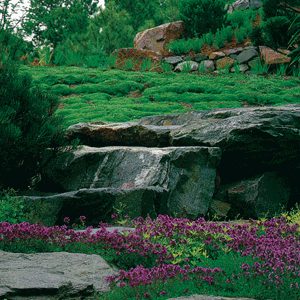
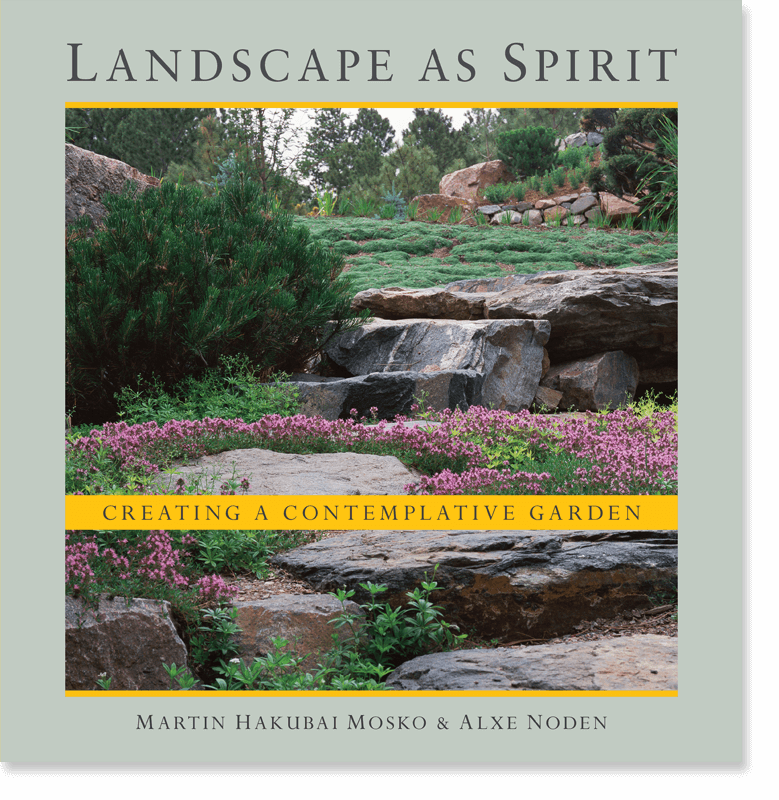
Landscape as Spirit is now available in paperback!
"Water is a unique element of the garden in that it has no fixed form itself. It is the only "contained " element, like the mind in the body. The qualities of water are much like the qualities of mind: still or dancing, silent or singing. And like the mind, water related with materials around it for its definition and shape.
Water has the qualities of clarity, purity, freshness and power, and using it in the garden evokes those aspects. Not all of them are present at all times in all gardens, but by looking at each quality we can understand how the energy of water is expressed. Each inherent quality of water evokes an emotional response, which in turn informs the overall feel of the garden.
Water's clarity is expressed both through its depth and its power to reflect. Looking down through clear water is one way to understand the very idea of clarity. To look through the surface of water to the layers below is to approximate the experience of looking deeply into the mind, past the surface chatter of ordinary consciousness. In both cases we can see how the ripples of daily activity do not change the qualities that lie under the surface. "
From Landscape as Spirit by Martin Hakubai Mosko and Alxe Noden, pages 39-41

